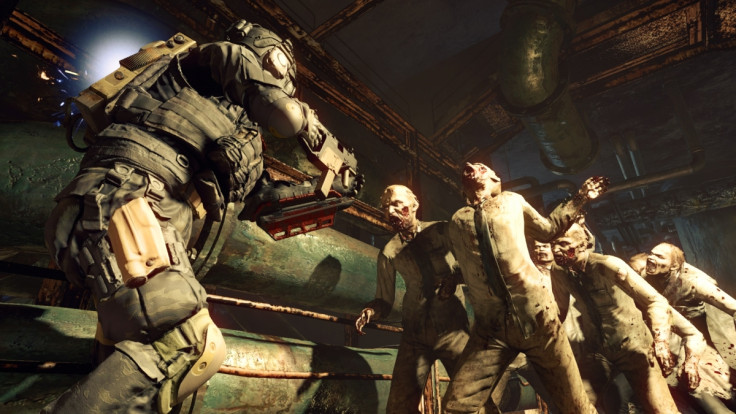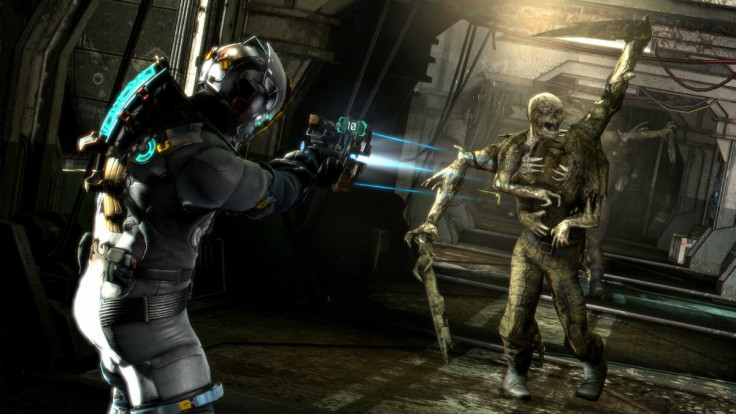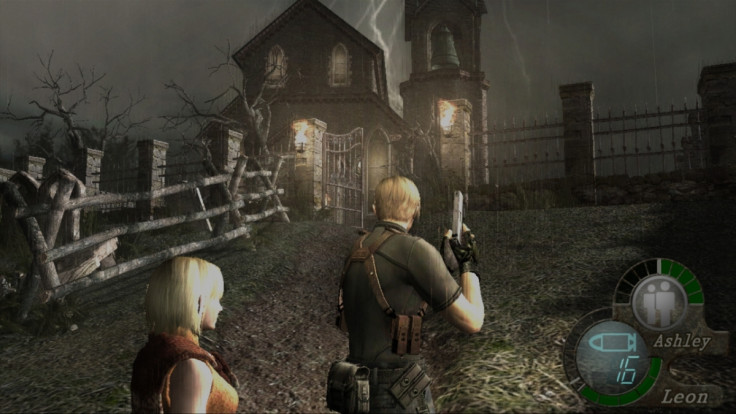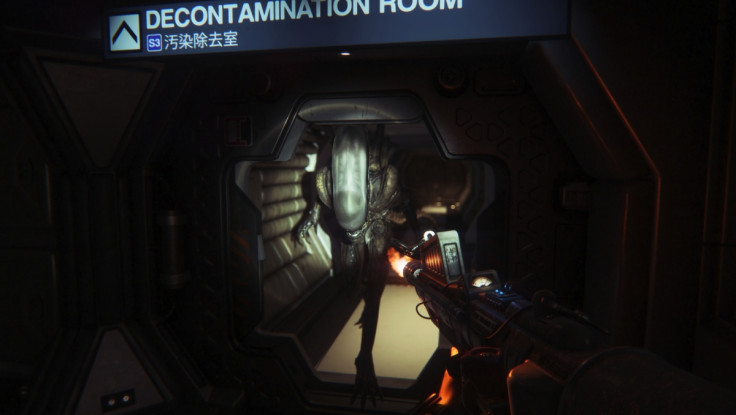Resident Evil: Umbrella Corps looks awful but guns still belong in horror games

Seemingly in response to action horror titles such as Dead Space, Gears of War, and Resident Evil - which recently dropped all pretence of being scary with the announcement of competitive online shooter Umbrella Corps - a different kind of horror game has become vogue in the past few years. One where the player is given no weapons, no fighting ability and no recourse when it comes to resisting enemies other than running and hiding.
Amnesia, Outlast, Slender, SCP Containment Breach, One Late Night, Erie and plenty of others, are united in the idea that inability to fight is scarier than direct confrontation, that brute forcing the player to avoid enemies is a shortcut to making them fearful. But despite denying weapons to the player, these horror games make an implicit promise of safety.
They're like those stealth sections in shooting games where your character wakes up somewhere without his gear and has to sneak out - you just know you're not going to end up in a gunfight. Despite what may seem like overwhelming odds, you know that every guard can be avoided, distracted or sneaked past, because otherwise, in the mechanical sense, the game wouldn't be fair.

Video games have to be fair. They have to provide players with resources, options and ways out, otherwise progression is impossible and the game is "broken". So even though Amnesia, Outlast et al portend to evoke a greater sense of vulnerability, they still provide for and defend the player to precisely the same extent as horror games that contain weapons. Geography, monster AI and hiding places are rigged in such a way that the player can always make it to the next section and survive until the end of the game.
Running and hiding might seem a more sophisticated way to behave in a horror game, since it requires wits more than brawn, but it's no more complex an interaction than aiming and firing a gun, or swinging a sword. The survival tools in Slender might seem less tangible and more opaque than in Dead Space, but like the shooting in shooting games, with running and hiding the player still has one, unfailing curative for every situation.
Dispassionate questioning of video game fairness aside, in terms of atmosphere and tone, there's something liberating about a game refusing to give you a gun or a sword. It's a tacit implication that you'll never have to face an enemy head-on, that this game intrinsically doesn't expect you to fight or confront your problems, and that you're free from responsibility. To me, that's anti-horror. More intimidating is the inference that at some point you will have to come face-to-face with what's chasing you, but at that point you may or may not be equipped to fight it.

Alien Isolation does this well. You're given tools and weapons, and they're effective to the extent that, when used properly, they can dispatch some enemies and dispel others, but no fight is a guaranteed win. On the contrary, open conflict is an enormous struggle, always, and in the downtime – the moments when creatures are not on-screen – you're immeasurably tenser, since you have to remain conscious not only of your surroundings but also your ammunition and the resources needed to build better weapons.
Personally, this dynamic would work for me even if there was actually no chance of me ending up in a fight – put me in a horror game, with a horror setting, and give me a loaded gun to carry around, and whether a monster ever attacked me or not would be besides the point. It's the fact I'm carrying a weapon. It's the threat, implied by that same closed loop of video game fairness ('there must be a battle coming, that's why they've given me a gun') that matters.
Dead Space and other action horror games tipped the balance by giving the player enough, or almost enough resources so they could actively hunt enemies. I understand run-and-hide horror games as a rebuff to that, and also as the natural genre for smaller horror studios that haven't the budget to get deep into combat and weapon mechanics.

I often enjoy run-and-hide horror. But I don't think it's constitutionally or automatically scarier, or more likely to make the player feel vulnerable, than a horror game that has weapons. Superficially, in run-and-hide horror the odds seem stacked against the player, but level and monster design are always engineered to guarantee safety and progression, in just the same way as a plentiful supply of ammunition and guns.
Whilst having no guns in Outlast or Amnesia is unusual and jarring at first, to the point that we often credit these games with stripping the player of their weapons, more lasting horror comes from the persistent, background threat of difficult but inevitable direct conflict.
For all the latest video game news follow us on Twitter @IBTGamesUK.
© Copyright IBTimes 2025. All rights reserved.






















